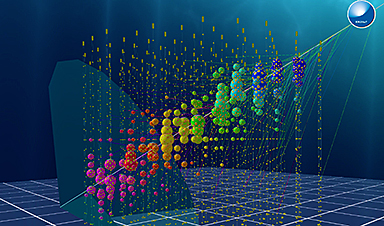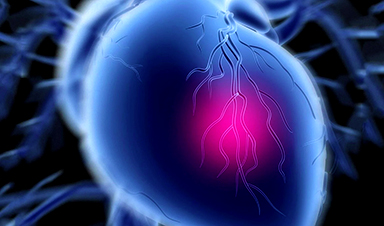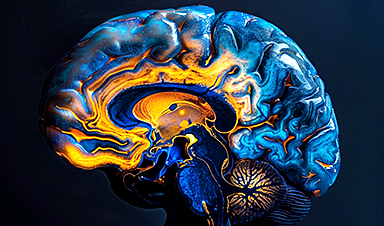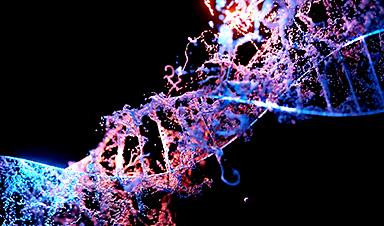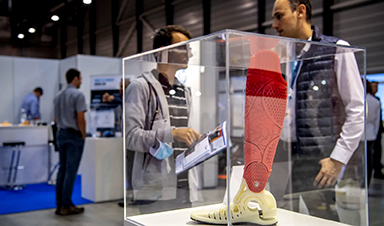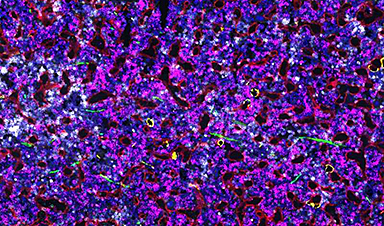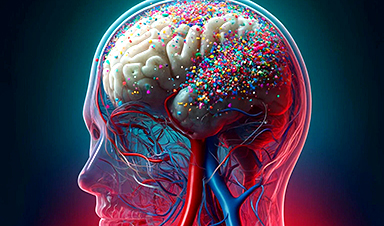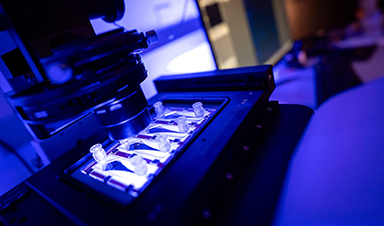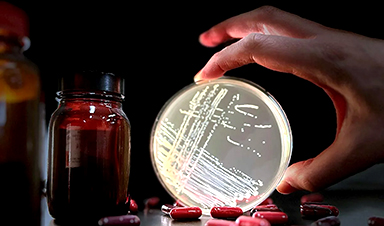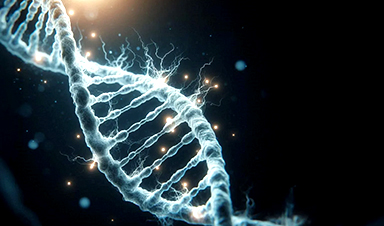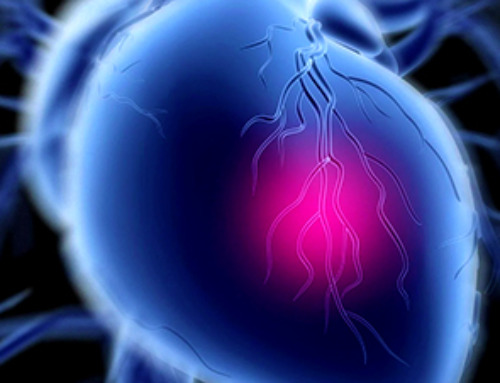UK places South Africa on red travel list over B.1.1.529 variant picked up by scientists in country.
What is the new variant and why is it a concern?
Scientists have detected a new Covid-19 variant called B.1.1.529 and are working to understand its potential implications. About 100 confirmed cases have been identified in South Africa, Hong Kong and Botswana.
B.1.1.529 has a very unusual constellation of mutations, which are worrying because they could help it evade the body’s immune response and make it more transmissible, scientists have said. Any new variant that is able to evade vaccines or spread faster than the now-dominant Delta variant may pose a significant threat as the world emerges from the pandemic.
Dr Susan Hopkins, the chief medical adviser to the UK Health Security Agency, said the R value, or effective reproduction number, of the B.1.1.529 variant in the South African province of Gauteng, where it was first found, was now 2 – a level of transmission not recorded since the beginning of the pandemic, before restrictions began to be imposed. For an R of anything above 1, an epidemic will grow exponentially.
Where has it been found?
Early signs from diagnostic laboratories suggest the variant has rapidly increased in Gauteng and may already be present in South Africa’s other eight provinces.
In a regular daily update on confirmed cases nationally, the National Institute for Communicable Diseases reported 2,465 new Covid-19 infections, slightly less than double the previous day’s infections. The NICD did not attribute the latest resurgence to the new variant, although some leading local scientists suspect it is the cause.
South Africa has confirmed about 100 specimens as B.1.1.529 but the variant has also been found in Botswana and Hong Kong, with the Hong Kong case a traveller from South Africa. As many as 90% of new cases in Gauteng could be B.1.1.529, scientists believe.
Israel said it had detected its first case of the variant, in a person who had returned from Malawi.
How does it compare with other variants?
Senior scientists on Thursday evening described B.1.1.529 as the worst variant they had seen since the start of the pandemic. It has 32 mutations in the spike protein, the part of the virus that most vaccines use to prime the immune system against Covid. That is about double the number associated with the Delta variant. Mutations in the spike protein can affect the virus’s ability to infect cells and spread, but also make it harder for immune cells to attack the pathogen.
The Delta variant was first detected in India in late 2020 but has spread around the world, causing an increase in case rates and deaths. Other coronavirus variants include Alpha (which originated in Kent in the UK), Beta (formerly known as the South African variant) and Gamma (originally found in Brazil). It has been suggested, after a drop in cases in Japan, that variants can “mutate themselves out of existence”.
What new restrictions are being imposed?
South Africa will be placed under England’s “red list” travel restrictions from midday on Friday – affecting between 500 and 700 people who typically travel to the UK from South Africa each day through airlines including British Airways and Virgin.
The ban will also cover flights from Namibia, Lesotho, Botswana, Eswatini and Zimbabwe. Scotland confirmed all arrivals from the countries must self-isolate and take two PCR tests from midday on Friday, while anyone arriving after 4am on Saturday will need to stay at a managed quarantine hotel.
Recent arrivals from southern Africa will also be tracked down and offered tests in an effort to avoid the introduction of the new strain.
Israel also announced it would ban its citizens from travelling to southern Africa – covering the same six countries as well as Mozambique – and bar the entry of foreign travellers from the region.
Germany, Japan, France and the Czech Republic are among other countries that have suspended flights. The European Commission plans to stop flights from the region.
England’s travel red list had remained empty since the final seven countries, including Peru, Colombia and Panama, were removed on 1 November. South Africa had been removed on 11 October, meaning vaccinated travellers were able to visit once again without having to quarantine in a hotel on their return.
News
Mediterranean neutrino observatory sets new limits on quantum gravity
Quantum gravity is the missing link between general relativity and quantum mechanics, the yet-to-be-discovered key to a unified theory capable of explaining both the infinitely large and the infinitely small. The solution to this [...]
Challenging Previous Beliefs: Japanese Scientists Discover Hidden Protector of Heart
A Japanese research team found that the oxidized form of glutathione (GSSG) may protect heart tissue by modifying a key protein, potentially offering a novel therapeutic approach for ischemic heart failure. A new study [...]
Millions May Have Long COVID – So Why Can’t They Get Diagnosed?
Millions of people in England may be living with Long Covid without even realizing it. A large-scale analysis found that nearly 10% suspect they might have the condition but remain uncertain, often due to [...]
Researchers Reveal What Happens to Your Brain When You Don’t Get Enough Sleep
What if poor sleep was doing more than just making you tired? Researchers have discovered that disrupted sleep in older adults interferes with the brain’s ability to clean out waste, leading to memory problems [...]
How to prevent chronic inflammation from zombie-like cells that accumulate with age
In humans and other multicellular organisms, cells multiply. This defining feature allows embryos to grow into adulthood, and enables the healing of the many bumps, bruises and scrapes along the way. Certain factors can [...]
Breakthrough for long Covid patients who lost sense of smell
A breakthrough nasal surgery has restored the sense of smell for a dozen long Covid patients. Experts at University College London Hospitals NHS Foundation Trust successfully employed a technique typically used for correcting blocked nasal passages, [...]
Scientists Invent Plastic That Can Dissolve In Seawater In Just A Few Hours
Plastic waste and pollution in the sea have been among the most serious environmental problems for decades, causing immense damage to marine life and ecosystems. However, a breakthrough discovery may offer a game-changing solution. [...]
Muscles from the 3D printer
Swiss researchers have developed a method for printing artificial muscles out of silicone. In the future, these could be used on both humans and robots. Swiss researchers have succeeded in printing artificial muscles out [...]
Beneficial genetic changes observed in regular blood donors
Researchers at the Francis Crick Institute have identified genetic changes in blood stem cells from frequent blood donors that support the production of new, non-cancerous cells. Understanding the differences in the mutations that accumulate [...]
Shocking Amounts of Microplastics in the Brain – It Could Be Increasing Our Risk of Dementia
The brain has higher concentrations of plastic particles compared to other organs, with increased levels found in dementia patients. In a comprehensive commentary published in Brain Medicine, researchers highlight alarming new evidence of microplastic accumulation [...]
Baffling Scientists for Centuries: New Study Unravels Mystery of Static Electricity
ISTA physicists demonstrate that contact electrification depends on the contact history of materials. For centuries, static electricity has intrigued and perplexed scientists. Now, researchers from the Waitukaitis group at the Institute of Science and [...]
Tumor “Stickiness” – Scientists Develop Potential New Way To Predict Cancer’s Spread
UC San Diego researchers have developed a device that predicts breast cancer aggressiveness by measuring tumor cell adhesion. Weakly adherent cells indicate a higher risk of metastasis, especially in early-stage DCIS. This innovation could [...]
Scientists Just Watched Atoms Move for the First Time Using AI
Scientists have developed a groundbreaking AI-driven technique that reveals the hidden movements of nanoparticles, essential in materials science, pharmaceuticals, and electronics. By integrating artificial intelligence with electron microscopy, researchers can now visualize atomic-level changes that were [...]
Scientists Sound Alarm: “Safe” Antibiotic Has Led to an Almost Untreatable Superbug
A recent study reveals that an antibiotic used for liver disease patients may increase their risk of contracting a dangerous superbug. An international team of researchers has discovered that rifaximin, a commonly prescribed antibiotic [...]
Scientists Discover Natural Compound That Stops Cancer Progression
A discovery led by OHSU was made possible by years of study conducted by University of Portland undergraduates. Scientists have discovered a natural compound that can halt a key process involved in the progression [...]
Scientists Just Discovered an RNA That Repairs DNA Damage – And It’s a Game-Changer
Our DNA is constantly under threat — from cell division errors to external factors like sunlight and smoking. Fortunately, cells have intricate repair mechanisms to counteract this damage. Scientists have uncovered a surprising role played by [...]

